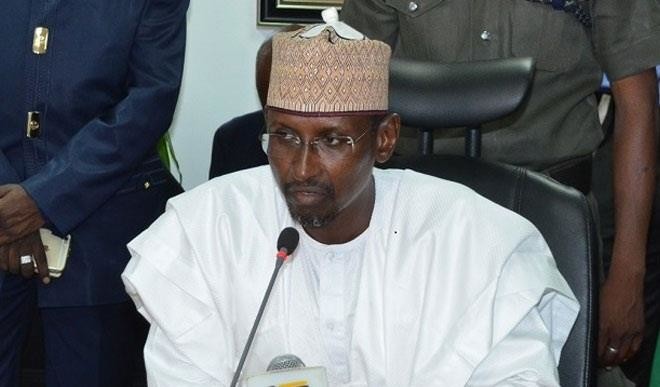As Bello’s FCTA enters its ‘service phase’
FCT Minister, Malam Muhammad Bello clocked two years in office on November 11, and one remarkable thing about his administration is the splendid manner he has breathed life into abandoned infrastructural projects and given a human face to the already existing ones. Two years down the line and one could say with all sense of […]


FCT Minister, Malam Muhammad Bello clocked two years in office on November 11, and one remarkable thing about his administration is the splendid manner he has breathed life into abandoned infrastructural projects and given a human face to the already existing ones.
Two years down the line and one could say with all sense of duty and responsibility that the FCT Minister has really not disappointed in this regard, most notably in the area of road infrastructure.
Evidently, the FCT Administration, based on its initial focus, has been able to ensure that all the three major arterial roads into and outside of the city are completed. Today, the airport road, the Kubwa Expressway, the notorious Nyanya/Area 1/ Central Area segment have all been improved upon and are now free for motorists to come into the city and go out safely.
Also within the city itself, there have been notable improvements on the B6 and B12 roads, otherwise known as the Independence Avenue and the Constitution Avenue that have had their bridges hanging there uncompleted for so many years. Already some sections of these roads have been completed and opened to the public, including Circle Road and three underpass bridges at the National Stadium end of the road connecting the Central Business District with the Airport Road. With this development, motorists coming from the Airport could now drive straight across the Churchgate building without the detour which made driving clumsy.
The Abuja light rail project is equally another area that one could say has witnessed tremendous improvements. As at the time the Minister, Bello Muhammad was appointed in 2015, the light rail was just about 70 percent with respect to bridges and intersections, but less than 50 percent with respect to stations, the tracks, the centre station, the mechanical workshop as well as other critical aspects.
But as was recently revealed, the project is now 98 percent complete and the Minister has promised that before Christmas, anybody coming to Abuja by flight could access the airport railway station and terminate at the station in the Central Business District or the metro station. That way, you don’t have to drive for 44 kilometers before you come into the city or go out of the city.
What the Minister has been able to achieve with these nice development is that he has convinced FCT residents that he is an astute public administrator who sets priorities in the interest of the masses and sticks to them, despite lean resources.
This time, the Minister has once again assured that the focus of the FCTA in this phase two will be mainly to provide additional support to transport, to education, health and most importantly ICT to make Abuja a smart city, following up on the IBM grant to Abuja for smart city development.
The urgency and enormity of the work required has been underscored with the appointment and swearing in of the Mandate Secretaries, Chief Executives of selected extra departmental agencies as well as the senior political aides to help continue to drive the change agenda of President Muhammadu Buhari and the vision of the founding fathers of the FCT.
The whole idea while their appointment was delayed was to strengthen the institutions of the FCT so that work does not have to depend on the Minister or his appointees because Ministers will always come and go.
All of these are indications that there is intent to run an effective public service that avoids waste and conserves resources with the overriding interest of achieving a self-funding institution and an economy capable of providing employment for the teeming youth and those coming behind.
It is important also that funds are made available for resettlement because the reality is that the city is expanding at a very high rate, and there needs to be a corresponding ability to pay compensation, to relocate people and communities to the rightful place as part of their sacrifice for this city to grow.
Danladi Akilu, Durumi II, Abuja.
